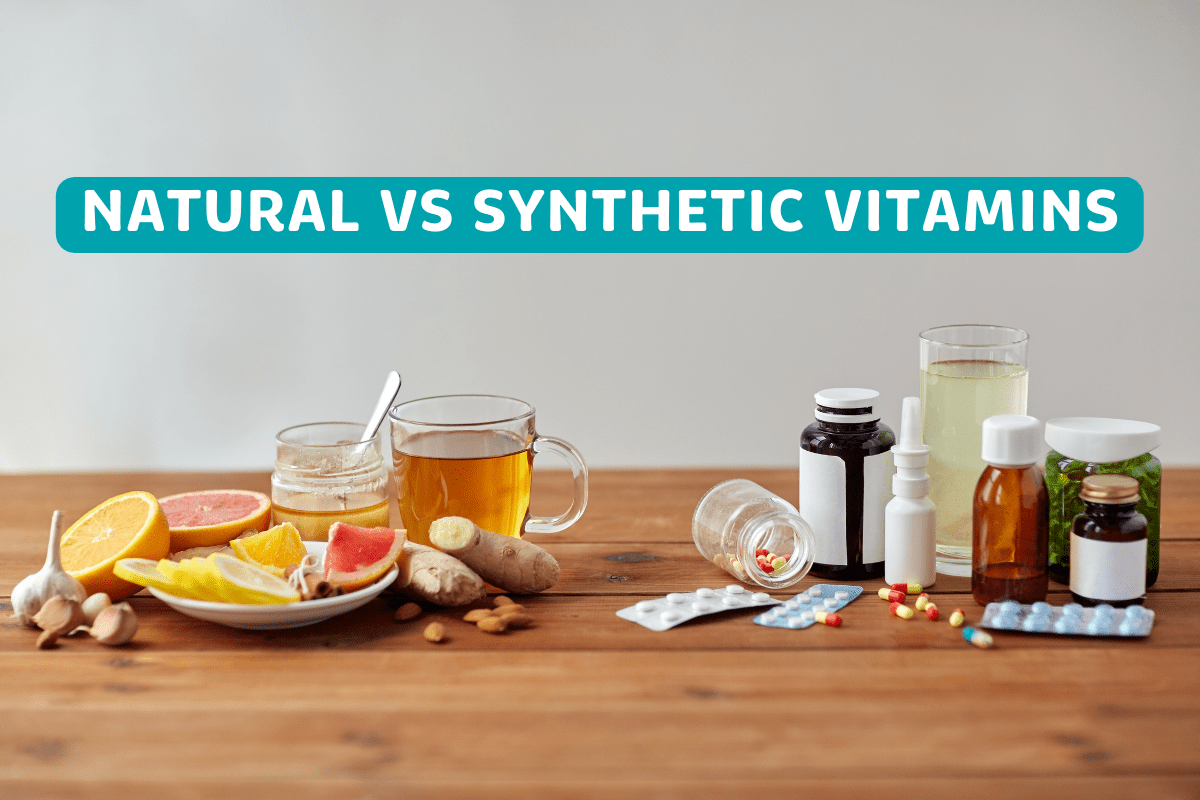Are you curious about the ongoing debate between natural and synthetic supplements? We all want the best for our bodies, but with so many options available, it can be overwhelming to determine which type is truly better. In this article, we will explore this age-old question and provide you with some insight on whether natural supplements are indeed superior to their synthetic counterparts. Let’s embark on this journey to discover which option may be the best fit for your health needs.
Definition of natural and synthetic supplements
What are natural supplements?
Natural supplements are products made from naturally occurring substances, such as herbs, plants, and minerals. They are typically derived from whole food sources and may come in various forms, such as capsules, tablets, powders, or liquids. Natural supplements aim to provide additional nutrients and support overall health and well-being.
What are synthetic supplements?
Synthetic supplements, on the other hand, are artificially created in a laboratory. They are designed to mimic the chemical makeup of natural substances and may contain isolated or synthesized versions of specific vitamins, minerals, or other nutrients. Synthetic supplements are often produced in standardized doses and formats for easy consumption.
Comparison of absorption and bioavailability
Absorption in the body
The absorption of natural and synthetic supplements in the body can vary. Natural supplements are believed to have a higher potential for absorption due to their complex nature, as they often contain a variety of co-factors and compounds that support absorption and utilization. On the other hand, synthetic supplements may be more readily absorbed due to their standardized and concentrated form.
Bioavailability
Bioavailability refers to the extent and rate at which a supplement is absorbed and utilized by the body. Natural supplements tend to have higher bioavailability since they contain additional natural components that aid in absorption. These components can enhance the body’s ability to break down and utilize the nutrients effectively. Synthetic supplements, while often designed to be easily absorbed, may sometimes have lower bioavailability due to the absence of these naturally occurring co-factors.

Effectiveness and potency
Effectiveness of natural supplements
Natural supplements are often praised for their effectiveness in promoting overall health and addressing specific health concerns. Since they are derived from whole food sources, they may contain a broader range of nutrients that work synergistically to provide enhanced benefits. The presence of natural compounds, such as antioxidants and phytonutrients, may contribute to the overall effectiveness of natural supplements.
Effectiveness of synthetic supplements
Synthetic supplements are designed to mimic specific nutrients found in natural sources, and they can be formulated with precision. This targeted approach allows for the precise delivery of desired nutrients, making synthetic supplements effective for addressing specific deficiencies. However, some argue that the isolated nature of synthetic supplements may limit their overall effectiveness compared to natural supplements.
Potency of natural supplements
The potency of natural supplements can vary depending on the quality of sourcing and preparation. Since they are derived from whole food sources, natural supplements often provide nutrients in their natural form, allowing for a balanced and easily absorbed combination of vitamins, minerals, and other compounds. This natural balance can contribute to their potency and effectiveness.
Potency of synthetic supplements
Synthetic supplements are manufactured with precise dosage and potency levels, ensuring consistency in nutrient content. This standardized approach allows for controlled dosing, making it easier to address specific nutrient needs. However, the isolated nature of synthetic supplements may limit the overall potency compared to natural supplements since they lack the additional components and co-factors found in whole food sources.
Safety and side effects
Safety of natural supplements
Natural supplements are generally considered safe when consumed as directed and derived from reputable sources. However, it is important to note that natural does not always equate to safe, as some natural substances may still carry risks or interact with medications. It is crucial to consult with a healthcare professional before starting any natural supplement regimen, especially if you have underlying health conditions or take other medications.
Safety of synthetic supplements
Like natural supplements, synthetic supplements can be safe when used properly. However, since synthetic supplements are concentrated forms of specific nutrients, there is a potential for adverse effects if consumed in excessive amounts. It is essential to follow recommended dosage guidelines and consult a healthcare professional before starting any synthetic supplement regimen.
Side effects of natural supplements
Natural supplements, when consumed in appropriate amounts, generally have minimal side effects. However, some individuals may experience allergic reactions or digestive discomfort, particularly if they have specific sensitivities or allergies to certain plants or substances. Monitoring for any adverse reactions and seeking medical advice if necessary is always advised when taking natural supplements.
Side effects of synthetic supplements
Similar to natural supplements, the side effects of synthetic supplements are typically minimal if used as directed. However, due to the concentrated nature of synthetic supplements, there is a higher risk of potential side effects, particularly when consumed in excessive quantities. Some individuals may experience digestive issues, headaches, or other symptoms if they exceed recommended dosages or have underlying health conditions.

Quality control and regulation
Quality control of natural supplements
The quality control of natural supplements can vary depending on the manufacturer and regulatory oversight. It is crucial to choose natural supplements from trusted and reputable brands that follow Good Manufacturing Practices (GMP) to ensure product quality, safety, and accurate labeling. Independent third-party testing and certifications, such as NSF International or US Pharmacopeia, can provide added assurance of quality.
Quality control of synthetic supplements
Similar to natural supplements, the quality control of synthetic supplements relies on the manufacturer’s practices and adherence to regulatory guidelines. It is essential to choose synthetic supplements from reputable brands that prioritize quality control measures, such as rigorous testing for purity, potency, and accurate labeling. Look for certifications or seals of approval from recognized organizations to ensure quality.
Regulation of natural supplements
The regulation of natural supplements varies from country to country. In the United States, natural supplements fall under the purview of the Food and Drug Administration (FDA) but are regulated as dietary supplements rather than drugs. This means that the FDA does not require pre-market approval for natural supplements, and manufacturers are responsible for ensuring their products are safe and properly labeled. It is essential to be cautious and choose natural supplements from brands that prioritize transparency and quality.
Regulation of synthetic supplements
Similarly, synthetic supplements are regulated as dietary supplements in the United States. The FDA does not require pre-market approval for synthetic supplements, and manufacturers are responsible for ensuring their products are safe and accurately labeled. It is crucial to choose synthetic supplements from reputable brands that prioritize quality control and comply with regulatory guidelines to ensure product safety and effectiveness.
Cost and availability
Cost of natural supplements
The cost of natural supplements can vary depending on various factors, including brand reputation, quality, sourcing, and manufacturing processes. In general, natural supplements may be slightly more expensive than synthetic supplements due to their whole food sourcing and potentially more complex manufacturing processes. However, it is important to consider the value of the nutrients and potential health benefits provided by natural supplements when evaluating their cost.
Cost of synthetic supplements
Synthetic supplements are often more affordable compared to natural supplements. Their precise manufacturing processes and targeted nutrient content allow for cost-effective production. This affordability may make synthetic supplements more accessible for individuals looking to address specific nutrient deficiencies or support general health at a lower price point.
Availability of natural supplements
Natural supplements are widely available in health food stores, pharmacies, and online retailers. Due to the increasing popularity of natural health products, the availability of natural supplements has significantly expanded in recent years. Additionally, some natural supplements may also be sourced directly from local farmers or herbalists, adding to their accessibility and availability.
Availability of synthetic supplements
Similar to natural supplements, synthetic supplements are readily available both in physical stores and online. They can be found in pharmacies, supermarkets, and dedicated supplement retailers. The affordability and standardized dosages of synthetic supplements have contributed to their widespread availability and accessibility.

Environmental impact
Natural supplements and the environment
Natural supplements are often considered more environmentally friendly compared to synthetic supplements. They are derived from renewable sources, such as plants, herbs, and minerals, and are typically produced using sustainable farming practices. The cultivation of natural ingredients for supplements can contribute to healthier ecosystems, biodiversity, and support local communities.
Synthetic supplements and the environment
The production of synthetic supplements may have a greater environmental impact due to their manufacturing processes. These processes often rely on the extraction and synthesis of specific nutrients, which may involve energy-intensive industrial processes and the use of chemicals. However, advancements in sustainable manufacturing practices and the use of renewable energy sources are being implemented to reduce the environmental impact of synthetic supplement production.
Personal preferences and beliefs
Personal preferences for natural supplements
Personal preferences for natural supplements can stem from various factors, including a desire for whole food-based nutrition, an inclination towards sustainability and environmental consciousness, or beliefs in the holistic benefits of natural substances. Some individuals may find that natural supplements align better with their personal values and lifestyle choices.
Personal preferences for synthetic supplements
Personal preferences for synthetic supplements may arise from the desire for targeted and precise nutrient supplementation. Some individuals may prefer the standardized dosing and ease of use offered by synthetic supplements, especially when addressing specific nutrient deficiencies or supporting specific health goals. Moreover, the affordability of synthetic supplements may also be a deciding factor for some individuals.
Beliefs about natural supplements
Beliefs about natural supplements vary among individuals. Some people believe that natural supplements are inherently safer, more effective, and have a more balanced nutrient profile due to their whole food sources. Others appreciate the potential synergistic benefits of natural compounds found in these supplements, such as antioxidants and phytonutrients. However, it is essential to critically evaluate these beliefs and consider scientific evidence to make informed choices.
Beliefs about synthetic supplements
Beliefs about synthetic supplements often revolve around their precise nutrient content and targeted approach. Some individuals trust that synthetic supplements can effectively address specific nutrient deficiencies and support overall health when used as directed. However, skepticism may exist regarding their potential limitations in terms of nutrient balance and the absence of naturally occurring co-factors.

Conclusion
The question of whether natural supplements are better than synthetic ones does not lend itself to a definitive answer. Each type of supplement has its own set of advantages and considerations. Natural supplements often offer a broader range of nutrients and potential synergistic benefits, while synthetic supplements provide precise dosing and affordability. Safety, quality control, personal preferences, and beliefs should guide individuals in making informed choices about the supplements they choose to incorporate into their health and wellness routines. Ultimately, it is advisable to consult with a healthcare professional before starting any supplement regimen to ensure it aligns with individual needs and goals.